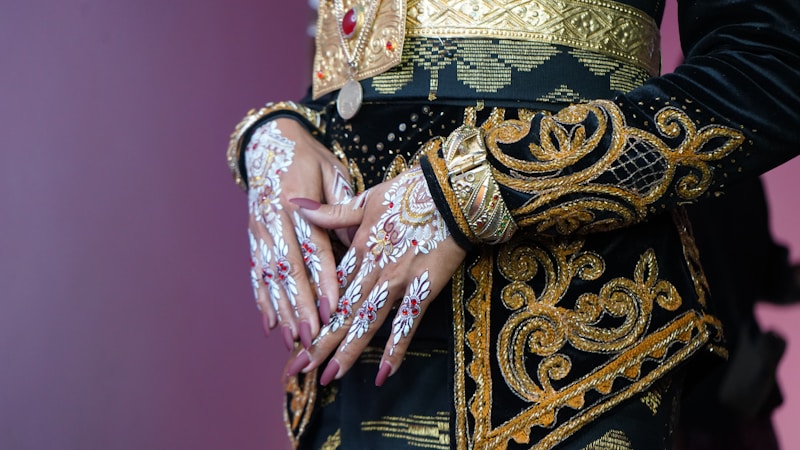Exploring the Vibrant World of Cultural Ceremonies
Understanding Cultural Ceremonies
Cultural ceremonies are rich and diverse expressions of tradition, beliefs, and social practices that hold significant meaning in communities across the globe. From wedding rituals to harvest festivals, these ceremonies reflect the values, history, and identity of a culture. This article delves into the various types of cultural ceremonies, their importance, and how they can be celebrated in contemporary society.
What Are Cultural Ceremonies?
Cultural ceremonies encompass a wide array of rituals and events that are performed in specific contexts within a community. They often mark significant life events, seasonal changes, or communal events and can vary greatly from one culture to another.
Types of Cultural Ceremonies
Cultural ceremonies can be broadly categorized into several types:
| Type of Ceremony | Description |
| Rites of Passage | These ceremonies signify transitions in an individual's life, such as birth, adulthood, marriage, and death. |
| Religious Ceremonies | Events that involve worship or invoking the sacred, such as baptisms, bar or bat mitzvahs, and church services. |
| Seasonal Celebrations | Festivals that celebrate changes in seasons and agricultural cycles, like harvest festivals or spring ceremonies. |
| Cultural Festivals | Public celebrations that showcase a culture's heritage through music, dance, art, and food. |
| Commemorative Ceremonies | Events to honor historical events or figures, such as national holidays or memorial days. |
The Importance of Cultural Ceremonies
Cultural ceremonies play a vital role in shaping identity and community cohesion. They allow individuals to connect with their heritage, participate in communal activities, and pass down traditions to future generations.
1. Fostering Community Bonds
Participating in cultural ceremonies can strengthen relationships within a community. These rituals often involve collective participation, reinforcing social ties and ensuring that traditions are kept alive.
2. Cultural Preservation
Cultural ceremonies are instrumental in preserving the unique aspects of a culture. They provide a platform for storytelling, artistic expression, and the transmission of customs that might otherwise be lost over time.
3. Creating Shared Experiences
Ceremonies bring people together to share experiences, celebrate achievements, and confront communal challenges. Such gatherings create shared memories that can unify a community.
Examples of Cultural Ceremonies Around the World
Here are a few notable cultural ceremonies from various parts of the globe:
Weddings
Marriage rituals vary significantly across cultures. For example, in India, a traditional wedding may last several days and include multiple ceremonies, such as the Mehendi (henna ceremony) and sangeet (musical celebration) before the actual wedding. In contrast, a conventional Western wedding may involve a church ceremony followed by a reception.
Harvest Festivals
Many cultures celebrate the harvest with festivals. In the United States, Thanksgiving is a day of gathering and gratitude, while in Japan, the Niiname-sai festival honors the first harvest of rice and offers thanks to deities.
Day of the Dead
In Mexico, the Day of the Dead (Día de los Muertos) honors deceased loved ones with vibrant altars, offerings, and festive gatherings. This tradition highlights the cultural perception of death and serves as a celebration of life.
Modern Perspectives on Cultural Ceremonies
As globalization influences how cultures interact, cultural ceremonies have evolved. Many traditional ceremonies now incorporate contemporary elements, making them more accessible and relatable to younger generations.
Adapting Traditions for Modern Audiences
Some communities now blend traditional ceremonies with modern practices to engage participants effectively. For instance, digital platforms are used to stream religious services, allowing those unable to attend in person to participate virtually.
Challenges Facing Cultural Ceremonies
Despite their importance, cultural ceremonies face challenges, including the threat of globalization, cultural appropriation, and the decline of traditional practices. It’s essential for communities to address these issues while ensuring that their cultural practices remain vibrant.
Maintaining Authenticity
While adapting to modern times is essential, communities must also preserve the authenticity of their traditions. Striking a balance between innovation and tradition is crucial to maintaining the integrity of cultural ceremonies.
Tips for Celebrating Cultural Ceremonies
If you’re looking to participate in or host a cultural ceremony, consider the following suggestions:
- Research: Learn about the significance and practices of the ceremony to show respect and understanding.
- Involve Community Members: Engage local community members in planning and executing the ceremony.
- Promote Inclusivity: Make the ceremony accessible to all members of the community.
- Document the Occasion: Capture the moments through photos and videos for future generations.
Conclusion
Cultural ceremonies are vital threads in the fabric of human society, illuminating our histories, beliefs, and connections. As we navigate a rapidly changing world, preserving and celebrating these traditions is crucial. Engaging with cultural ceremonies not only enriches our lives but also fosters understanding and respect across diverse communities.
In summary, explore cultural ceremonies near you and embrace the richness they offer. By doing so, we contribute to the preservation of our collective heritage and strengthen our communities.
